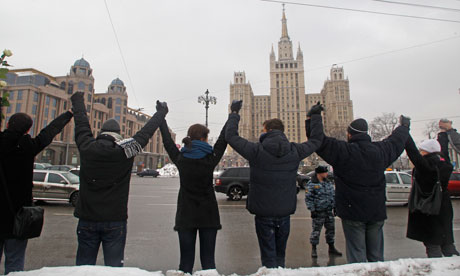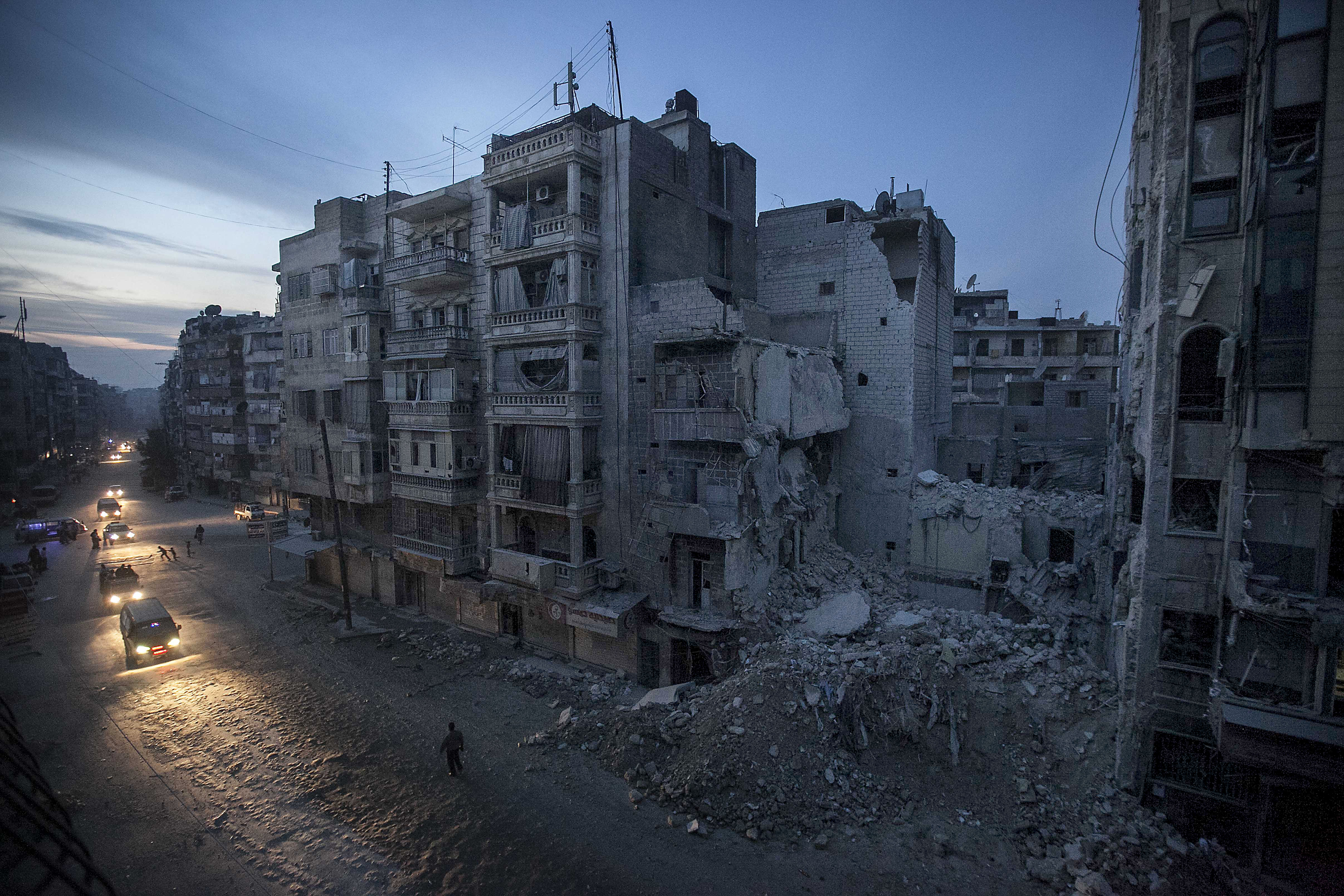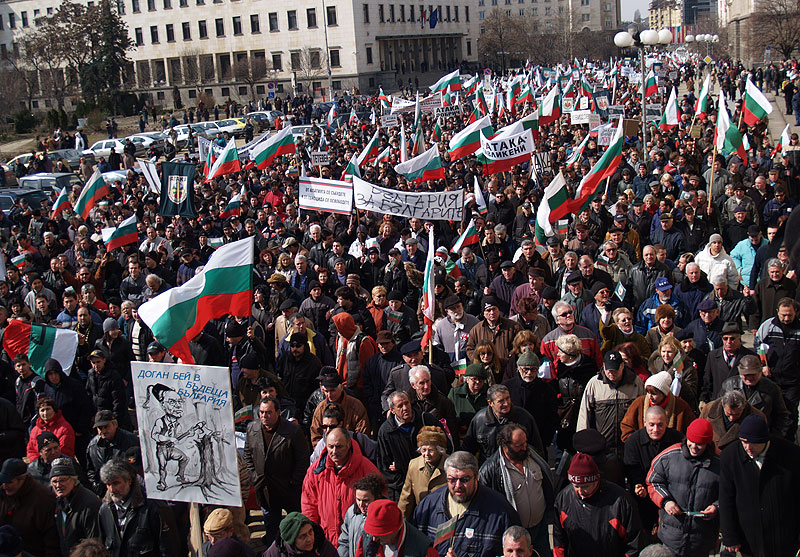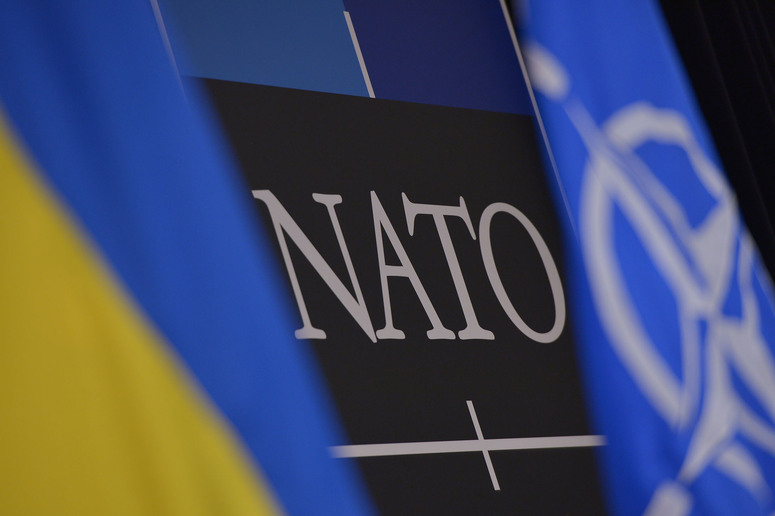By: Amina Abdullayeva
Russia has seen its fair share of domestic turmoil this week as crowds took to the streets to protest falsified parliamentary elections. Such activity on the part of thousands of ordinary citizens had not been seen since the break-up of the Soviet Union. Mass agitations are often emblematic of notable socio-political changes, and coming after the unbelievable events of the Arab Spring, these protests fed a lot of speculation. Of course, they were not nearly of the same magnitude and intensity as the developments in the Middle East – after all, the Russians were simply demanding fair parliamentary elections, not a regime change – the leap was easy to make in the imagination of many. Judging statements made by Prime Minister Vladimir Putin and his deputy Dmitry Rogozin, who is also Russia’s envoy to NATO and in charge of Russian military procurement, it is clear that the country is worried about a possible intervention.
This worry is translated into hostile foreign policy and aggressive language evident in interviews in the Russian press. D. Rogozin said in an interview to the respected radio station Ekho Moskvy that NATO has ready plans of military operations directed against Russia. He went so far as to say that certain NATO divisions, among them German, were earmarked to be deployed to Russian borders in the Baltic should a necessity arise. Evidently he was not bothered by the fact that a German soldier crossing a Russian border is unimaginable. Not to mention that there are no forces available for any such operation due to all the defence cuts stemming from the financial crisis. The reason he gave for such an unlikely scenario is resource scarcity: as world resource bases are shrinking, the West will look toward Russia’s riches.
With that sort of reasoning, it is interesting that Russia is not feeling threatened by China. As Foreign Minister Sergey Lavrov stated at this year’s Munich Security Conference, China is a partner. At the same time, it is a known fact that China is looking for resources all over the world, from Africa to Latin America; it is also known that the Russian demographic crisis is particularly disturbing in the Far East, along its borders with China, where many Chinese migrant workers are already seen on a regular basis. But the Russian government is not worried about this. Instead it is preoccupied with the militarily weak Western Europe attacking its densely populated Western borders.
At a time when major world powers are cutting their military spending, Russia is stepping it up with twenty-three trillion rubles earmarked for weapons upgrades. In an op-ed published on February 20 in a Russian-language source, Putin writes: “Under no circumstance will we step away from the potential of strategic containment; we will continue to strengthen it.” While NATO and the West are doing their best to reconcile Russia and create cooperative relations in a supportive environment, Russia is sabotaging these efforts with inexplicably aggressive rhetoric. The situation has deteriorated so much that NATO-Russia meeting during the Chicago Summit in May is now under question. Why is Russia doing this?
It seems that Cold War thinking has re-emerged among some in the top echelons of the Russian government. Both Putin and Rogozin, who are the two politicians most visible in the Russian press lately, emphasize the new military spending, the need to be protected, the dangers coming from the West. Their arguments seem unnecessarily alarmists at best, and fabricated at worst. For example, in his recent op-ed Putin contradicts himself by stating first that nuclear weapons will soon lose their key role as new threats and technologies arise. At the same time he underlines that the nuclear arsenal is an integral part of Russian defence and needs to be strengthened.
While cyber security is becoming more and more important, Putin gives it no more than a cursory mention, instead focusing on submarines, jet fighters and other heavy technology. All the while most security experts around the world believe that a digital arms race is already underway, with 36% of experts interviewed for the survey stating that it is even more important than missile defence. It seems that Russia is not noticing where the world is going. It is looking the other way, and stressing the irrelevant. A columnist for The Moscow Times, Nikolai Zlobin, recently observed that Russia is formulating reactive, instead of proactive policies. Not only is it so, but these reactive policies are based on a distorted perception of real issues and possibilities. Thus, instead of becoming a partner with great powers of the West – something Russia had always secretly, and sometimes openly, wanted – it is distancing itself from them. The worst is that the West really needs Russian cooperation and does not hide it, so all Russia needs to do is be the benevolent partner.

This sense of being cornered or besieged can be traced back to the activism of Russian citizens mentioned in the beginning. Activism of the citizens of the Arab Spring has resulted in dramatic changes, which made autocrats around the world think of such scenarios in their own countries. And the response of the Russian government has been badmouthing the West in the national press to create a sense of danger, and try to kill any impulses of its citizens to try to emulate certain Western practices. Not only that, but they want the citizens to think of the West as the enemy, not a friend who could be called upon, as it was called upon by the Arabs. The government is not entirely unsuccessful in this effort, as according to the Russian Public Opinion Research Centre, every second Russian, in other words, 50% of the population, perceives NATO negatively. At the same time, however, this negative view has declined 8% over the last two years. Coupled with the Russians’ political awakening – rather limited though it is – there is hope that the population will become more and more informed and empowered, and will be able to influence the government in a more positive way. If that does not happen, Russia will slip right back into the tensions of the Cold War (albeit in a different configuration, considering the ongoing geopolitical shifts around the world). A good moment for true and serious cooperation may be missed. The first step toward that mistake would be Russian absence from the NATO summit in May.
Disclaimer: Any views or opinions expressed in this article are solely those of the authors and the news agencies and do not necessarily represent those of the NATO Council of Canada. This article is published for information purposes only.



